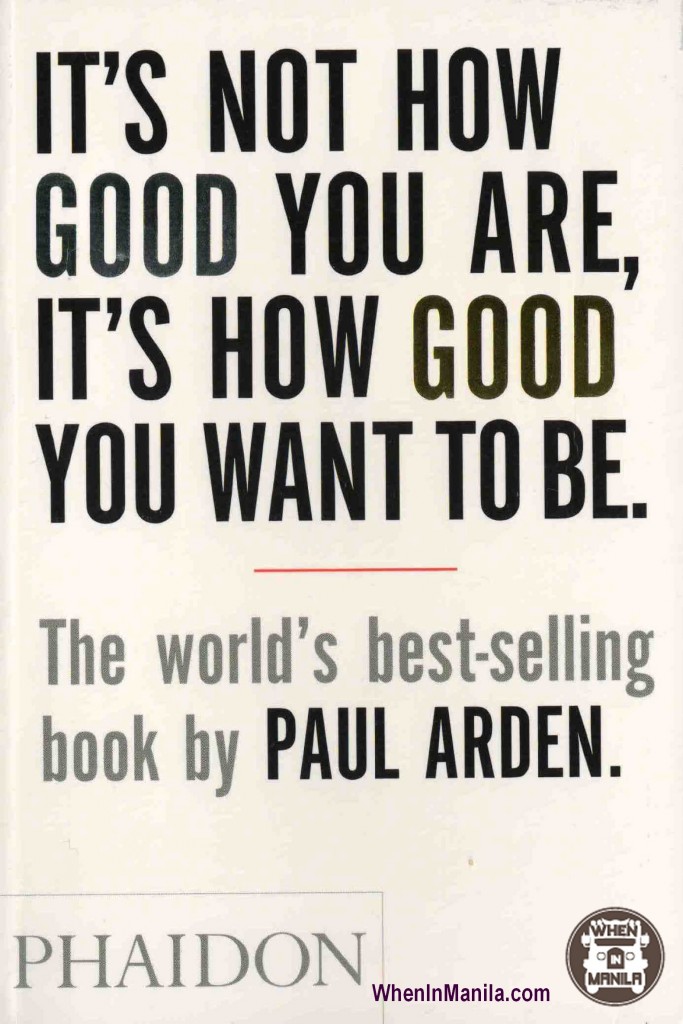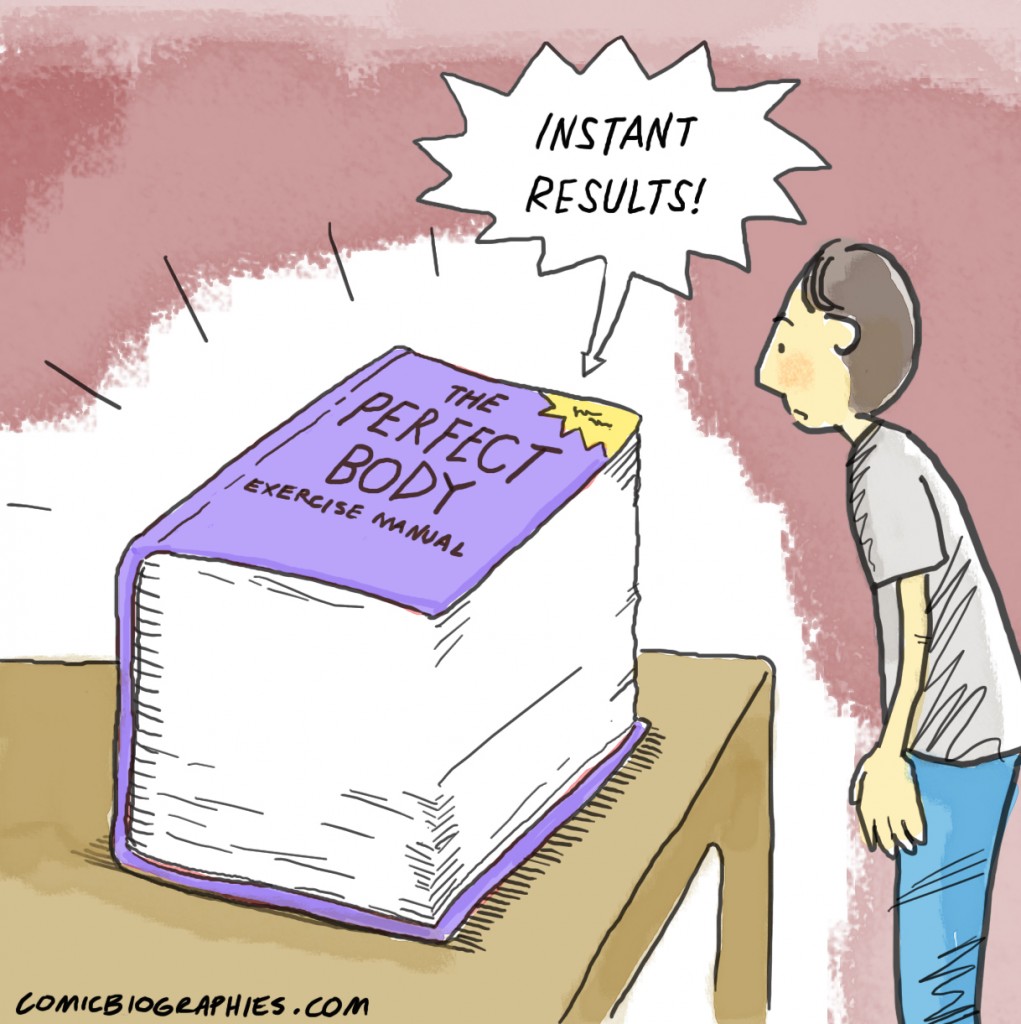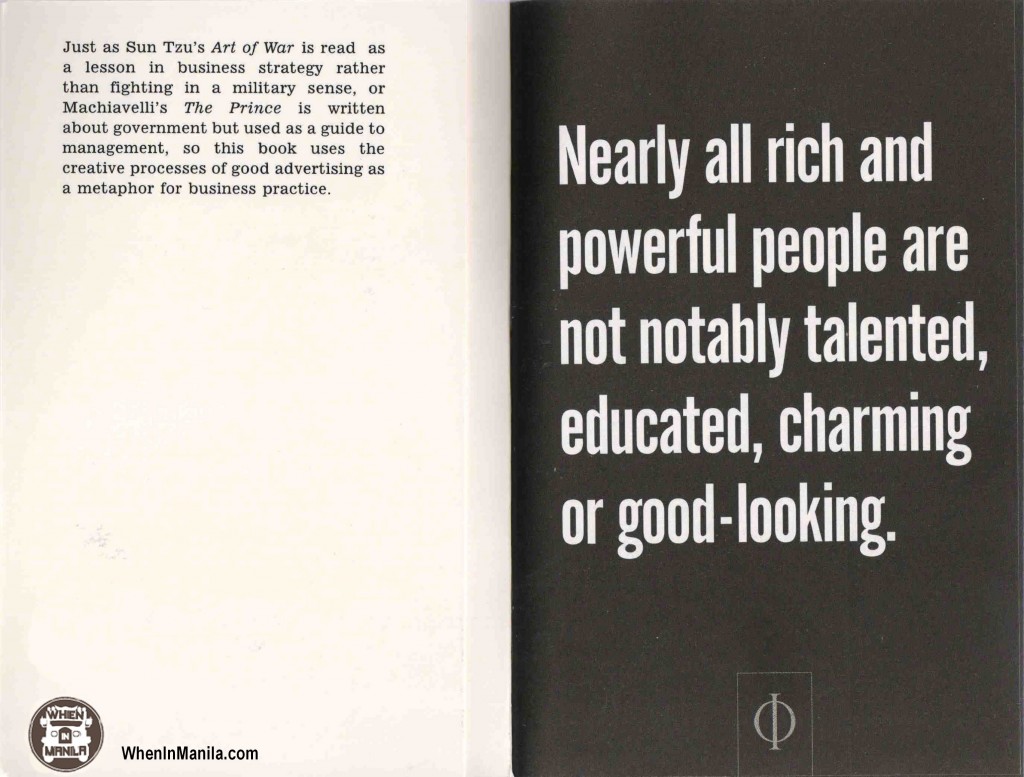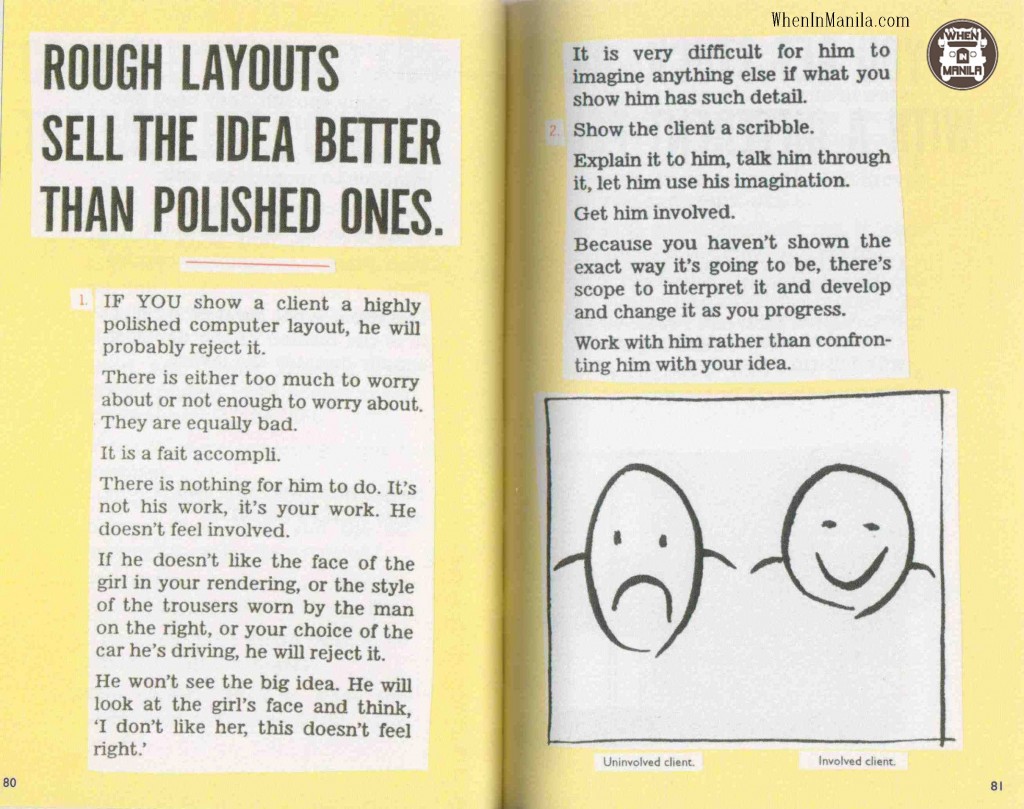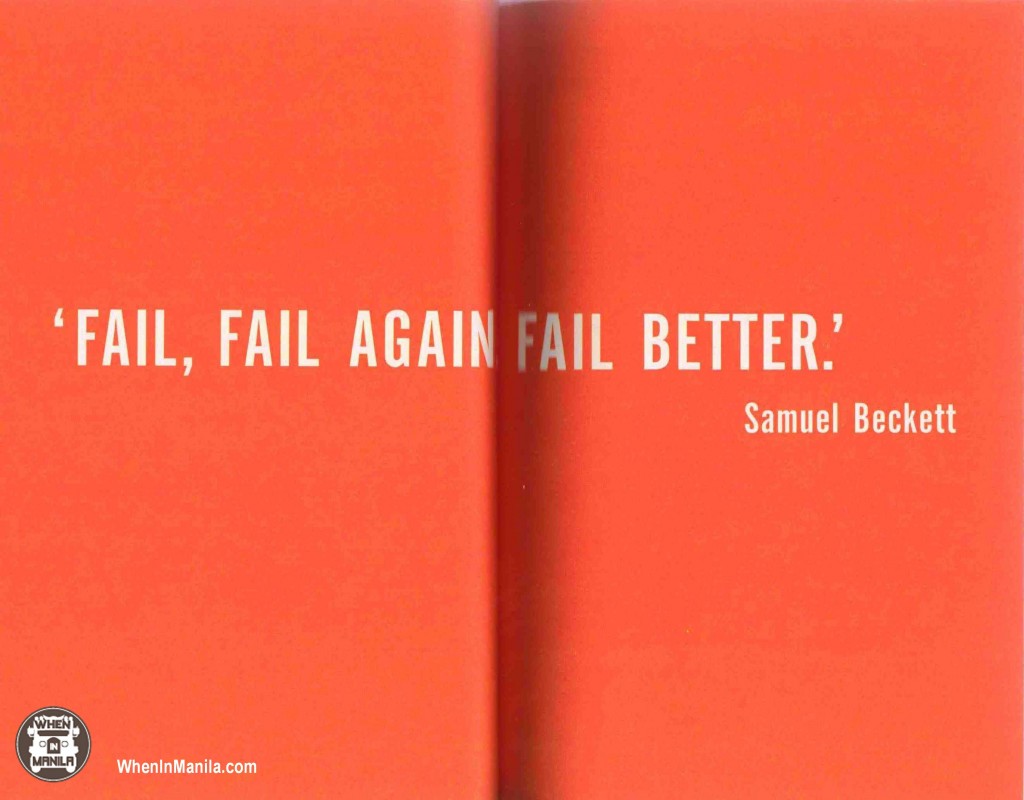When In Manila book shops, one notices more and more titles occupying the self-help section. They cover a broad range of topics–from how to be creative, be a success, get fit, find love, be happy…you name it. The titles beckon you with ever more grandiose claims and lofty promises. I’ve read quite a few over the years, and a lot of them blend together into boring, pseudo-scientific, pop psychology fluff.
Here’s where It’s Not How Good You Are It’s How Good You Want To Be sets itself apart.
“Nearly all rich and powerful people are not notably talented, educated, charming, or good looking.”
This sentence fills fills an entire page at the beginning of advertising guru Paul Arden’s 128-page book. You could finish it while stuck in traffic during rush hour.
This book is unlike any other book in the personal development genre. For one, it’s cool. It sports a catchy title and stylish design. It captures one’s attention and piques the interest. Browse through the table of contents–“Why do we strive for excellence when mediocrity is required?” p. 10, “Have you noticed how the cleverest people in school are not whose who make it in life?” p. 20, “Do not seek praise, seek criticism” p. 26–and you’re hooked.
Secondly, it’s shorter than any book out there in any genre (except children’s storybooks). Flipping through the pages, you’ll see that nearly half consists of photographs, cartoons, and pages containing a single sentence. Compared to, say, Tim Ferris’ The 4-Hour Work Week or Chris Gillebeau’s subsersive self-help book, The Art of Non-Conformity, one would be inclined to think that it doesn’t contain much substance. Think again.
As the third point illustrates: What seems simple is actually wisdom. Paul Arden aims to teach business success from an advertising perspective. He talks about how to stimulate creativity, the benefits of making mistakes, how you can turn an average company into a great company (regardless of your position), how to communicate effectively, and more.
Although published back in 2003 by Phaidon Press, and the advertising philosophy of Don Draper is considered laughably out-of-date today, the fundamental principles that Paul Arden talks about are as relevant as ever, and are applicable to any business that requires any amount of selling or creativity.
When in Manila, one is constantly being barraged by advertising: billboards block out the sky, print ads clutter the sides of buses, jingles blare on the airwaves, and don’t even mention the newspapers and magazines who rely solely on ads to make any sort of profit. The marketing and advertising people would do well to buy this book.
Paul Arden (7 April 1940 – 2 April 2008) was formerly a Creative Director at Saatchi and Saatchi, he is responsible for some of Britain’s best-known campaigns and famous slogans include ‘British Airways, The World’s Favourite Airline’, ‘The Car in front is a Toyota’ and ‘The Independent – It Is – Are You?’. In 1993 he set up the London-based production company Arden Sutherland-Dodd which did work for clients such as BT, BMW, Ford, Nestle and Levis. His other best-selling (and equally succinct) books are Whatever You Think Think the Opposite and God Explained in a Taxi Ride.

